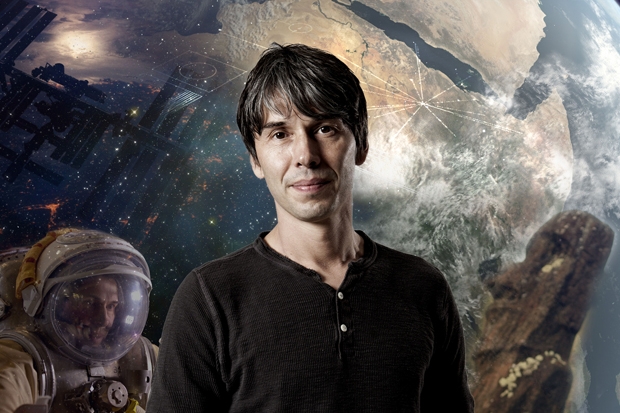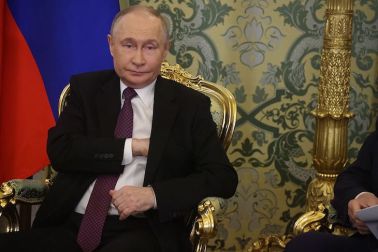Anybody feeling a bit depressed about the shortcomings of humanity could do worse than watch Brian Cox’s new series Human Universe (BBC2, Tuesday) — which, judging from the first episode, is all about how great we are.
Early on, Cox was shown hanging out, Attenborough-like, with some gelada baboons in the highlands of Ethiopia. They may share a common ancestor with us; by primate standards, they may have unusually complicated social structures and communication skills. Yet, as Cox rather gleefully pointed out, ‘They’re nowhere near as sophisticated as us.’ No wonder that while these losers are picking fleas off each other in a remote corner of Africa, we’ve not only ‘colonised every corner of the earth’, but can also live in space.
So, as Cox’s central question here put it, ‘What is it that makes us so special?’ The answer, you may not be surprised to hear, is the human brain, aka ‘the most complex physical structure we know of anywhere in the universe’. But that, of course, prompts other questions. How did our brains get so big in the first place? And how, in Cox’s favourite formulation of the night, did we go ‘from apeman to spaceman’ in just 250,000 years — or, if you prefer, ‘one-thousandth of one per cent of the age of the universe’?

These days, there seems to be a trend for history at its most sweeping, and this programme was certainly part of it. One minute, Cox was in the Great Rift Valley where proto-humans first shaped spearheads from stones, thereby signalling the moment we learned to imagine things that weren’t already there. Not long afterwards, he was in Petra, explaining the transition from nomadism to ‘civilisation’ (a word he used as unselfconsciously as Kenneth Clark once did).








Comments
Join the debate for just £1 a month
Be part of the conversation with other Spectator readers by getting your first three months for £3.
UNLOCK ACCESS Just £1 a monthAlready a subscriber? Log in